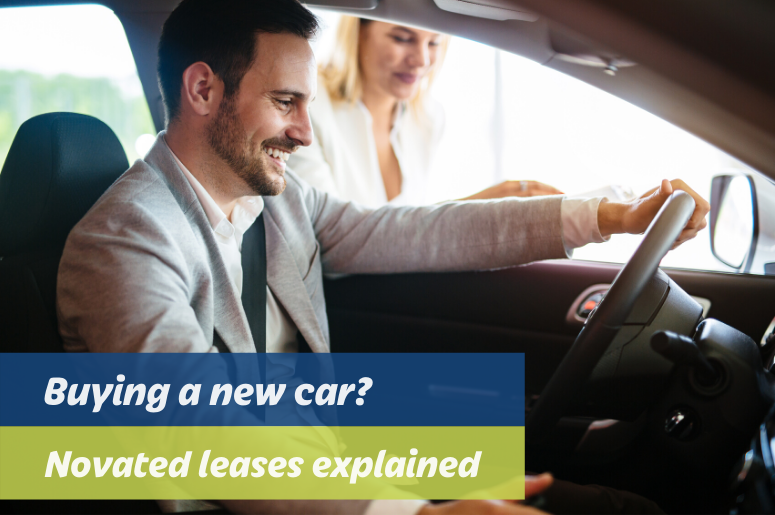Purchasing a new vehicle as an employee? Novated lease explained…

Benefits of a novated lease explained
The terms of a novated lease can be anywhere from one to five years.
Each payroll deduction reduces the balance of the lease using pre-tax salary. This provides significant tax benefits compared to simply financing the vehicle on your own.
Another big advantage of a novated lease is that all running costs including fuel, insurance, maintenance, and tyres are included in the same payroll deductions (depending on the lease type you choose).
Additional benefits include:
- Significant income tax savings
- GST savings on the purchase price and running costs
- More flexibility in choosing your vehicle
- Unrestricted vehicle usage for work and for private use
- Complete car management
- Flexible terms that fit your financial situation
Note that novated leases include a residual value amount that must be paid to the financier at the end of the lease term.
The minimal residual value percentages are set in a scale by the Australian Taxation Office.
Vehicle options and restrictions
With a novated lease, you have a great deal of flexibility in your choice of vehicle.
However, there are some restrictions for the types of vehicles that can be leased, most notably:
- No vehicles in excess of one tonne
- No vehicles older than 12 years at the end of the lease period
- No vehicle seating more than eight passengers
- No vehicles without the proper compliance plates
- No motorcycles
A novated lease is available for used vehicles as well as new vehicles. However, certain restrictions apply on the minimum value to be financed and the vehicle’s age at the end of the lease.
Novated lease explained: Overview of residual values
All finance lease agreements depend on the lease terms.
- Selling the vehicle:If you decide to sell/trade your car, you are responsible for any difference between the selling price of the car and its residual value. However, any profits made from the sale are yours to keep completely tax-free.
- Refinancing the car:If you would still like to continue with a novated lease, you can easily do so by refinancing the car and taking on a new lease.
- Paying off the residual amount: Paying off the residual value gives you full ownership of the vehicle. All prepayments end and you become responsible for all running costs.
Which option you choose depends on your financial situation. It is therefore in your best interests to seek professional advice before proceeding.
Getting started with a novated lease
Obtaining a novated lease for your new vehicle purchase is much easier than you think. It involves the following steps:
- Confirm that your employer offers a salary sacrificing option
- Choose your preferred vehicle
- Estimate the number of kilometres you expect to drive per year
- Engage Paul Johnson from Fleet Network (details below) to negotiate the best price and provide a detailed quote
- Complete your finance application
- Have your employer sign the Deed of Novation and Salary Package Quotation
- Allow Fleet Network to coordinate between the financier and the dealer
- Take delivery of your vehicle
- Have regular deductions made from your salary
If you would like a novated lease explained further or to discuss your circumstances with Ascent Accountants, please contact us on 08 6336 6200.
Alternatively, through our association with Fleet Network, you can contact them directly via the below details:
Paul Johnson on 0411 241 835 or paulj@fleetnetwork.com.au
Ryan Murphy on 0401 522 626 or ryanm@fleetnetwork.com.au
Need help with your accounting?








